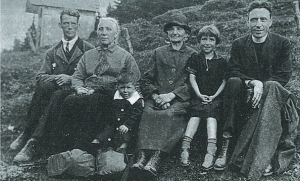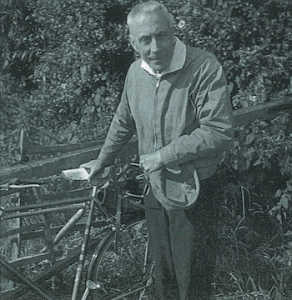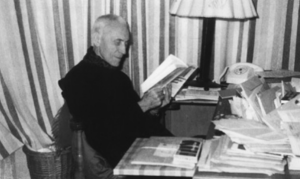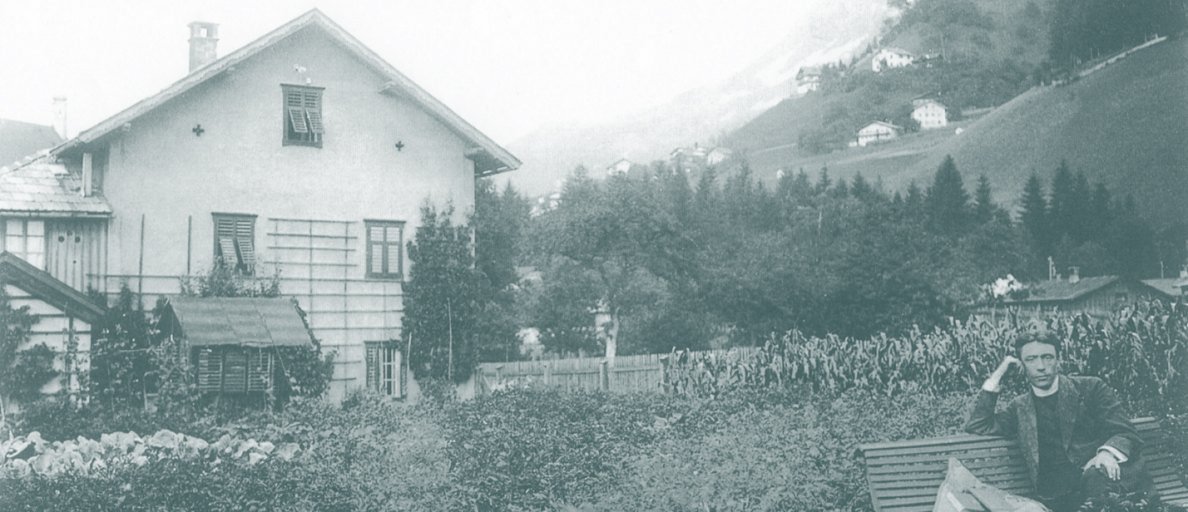Johannes Messner’s Life and Work
Johannes Messner (1891-1984) was a Catholic theologian, ethicist, jurist, sociologist, and economist, who applied classical and scholastic teachings on natural law to modern society.
Messner was born in 1891 in Schwaz in Tyrol, as the eldest of three sons. He was later to describe his family as poor but happy. His father was a miner in a copper and silver mine, and his mother worked in a cigarette factory. The experience of the joys of harmonious family life was to influence his later thought on the family as the foundation of human society, while the long working hours and poor wages of his parents was to inspire him with a passion for solving the “social question” of the injustices done to workers in industrial capitalism.

Messner was ordained to the priesthood in Brixen in 1914. After working as a curate in various parishes he was given permission to study jurisprudence in Innsbruck, taking a doctoral degree in 1922. He then studied economics in Munich, earning a doctorate in 1924 with a dissertation on the Catholic Marxist Wilhelm Hohoff. In 1930 he began to teach social ethics and Catholic Social Doctrine at the University of Vienna, at first as an adjunct, and from 1935 on as a full professor.
In his 1934 work Die soziale Frage [The Social Question], Messner criticized both the individualism of liberal capitalism, and the collectivism of socialism— proposing a “corporatist” third way, based on cooperation between classes. He was an important advisor to Austrian chancellor Engelbert Dollfuß, who attempted to realize such a third way in the so-called “corporatist-state,” based on organizations of vocational groups (“estates” or “corporations”), with cooperation between employers and employees. After Dollfuß’s assassination in 1934, Messner defended him against National Socialist propaganda in a biography: Dollfuß: An Austrian Patriot (1935). In 1936 he gave a detailed account of the theory of the corporatist state: Die berufständische Ordnung [The Social Order of Vocational Estates].

After the Anschluß Messner was considered a dangerous enemy by the National Socialist regime. He was, however, able to flee to England, where he lived in exile during the Second World War. In England Messner read widely in British empiricism, liberal political economy, and English common law jurisprudence, and also studied the works of Blessed John Henry Newman. In 1941 he published Man’s Suffering and God’s Love, a reflection on suffering in the light of his own experience, and of the catastrophe of his homeland in the war.
In 1949, Messner published Social Ethics: Natural Law in the Modern World, an ambitious attempt at developing classical and scholastic teachings on natural law and natural right— especially as taught by St. Thomas Aquinas— and applying them to modern society. He was to revise and expand this encyclopedic work throughout his career, overseeing numerous editions in various languages. In trying to apply natural law teaching to modern society, Messner made use of insights into modern social structures from various disciplines and schools of thought including classical liberal political economy, the Marxist critique of political economy, and especially Weberian sociology.

In 1949 Messner returned to Vienna, and was restored to his chair at the University. In the following years he worked as a professor, whose lectures were always crowded, and published numerous studies including important monographs on cultural ethics (Kulturethik, 1954), English socialism (Das englische Experiment des Sozialismus, 1954), general ethics (Ethik, 1955), modern sociology and scholastic natural law (Moderne Soziologie und scholastisches Naturrecht, 1961), and the common good (Das Gemeinwohl, 1962). In 1962 he retired from active teaching, being made professor emeritus of the University of Vienna. Even after his retirement, however, he continued to publish numerous scholarly works. He died in 1984.
Johannes Messner was known for his highly methodical and disciplined life, and his ability to work for long periods of time with great concentration. His many spiritual children also knew him as an exemplarly priest, and a kind, gentle, and wise friend. He was an avid hiker and mountain climber, and an accomplished pianist with a special love for the music of Beethoven.
Works in English
- Dollfuß: An Austrian Patriot. London, 1935.
- Man’s Suffering and God’s Love. London, 1941.
- Social Ethics: Natural Law in the Modern World. St. Louis and London, 1949.
- The Immaculate Heart: Litany and Meditations. Cork and Liverpool, 1950.
- Ethics and Facts: The Puzzling Pattern of Human Existence. St. Louis, 1952.
- The Executive: His Key Position in Contemporary Society. St. Louis, 1965.)
Articles
- Economy and Social Reconstruction, Dublin Review, October 1941, 154-168, reprinted in R.E. Mulcahy, Readings in Economics, Westminster (Maryland) 1959, The Newman Press
- Freedom as a Principle of Social Order – An Essay in the Substance of Subsidiary Function, The Modern Schoolman. A Quarterly Journal of Philosophy 28 (2), January 1951, 97-110
- Law in Economics and in Ethics, Review of Social Economy 13 (2), September 1955, 91-99
- The Postwar Natural Law Revival and its Outcome, Natural Law Forum 4 (1), 1959, 101-105
- International Social Justice. The Fundamentals, World Justice, Louvain 1962, vol III/3, 293-309
- Fifty Years After the Death of Heinrich Pesch, Review of Social Economy 34 (2), October 1976, 117-123
The Johannes-Messner-Gesellschaft (Johannes Messner Society)
The Johannes-Messner-Gesellschaft (Johannes Messner Society) was founded in 1991 to promote the propagation and development of Messner’s intellectual and spiritual heritage. It organizes lectures and conferences on the questions relating to Messner’s work, and its application to current problems. It publishes its proceedings anually in its Mitteilungsblatt. The current president is theologian Dr. Maria Raphaela Hölscher.

